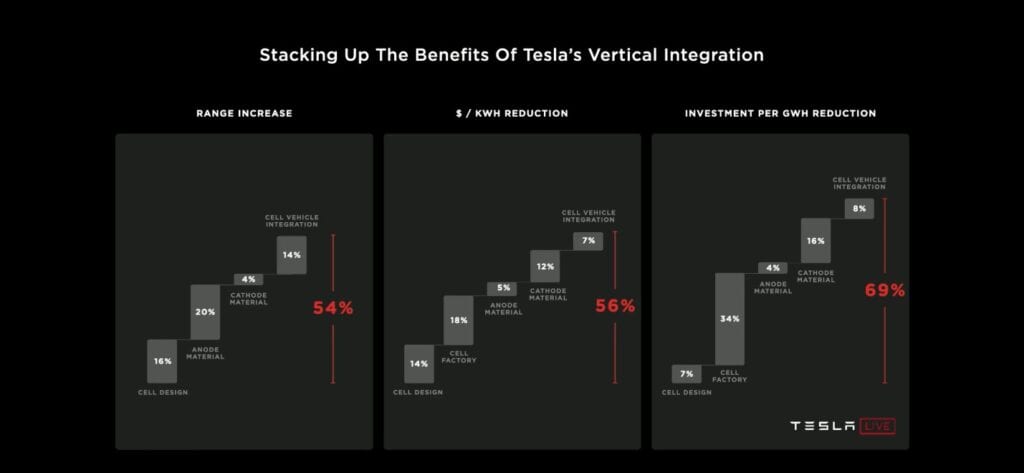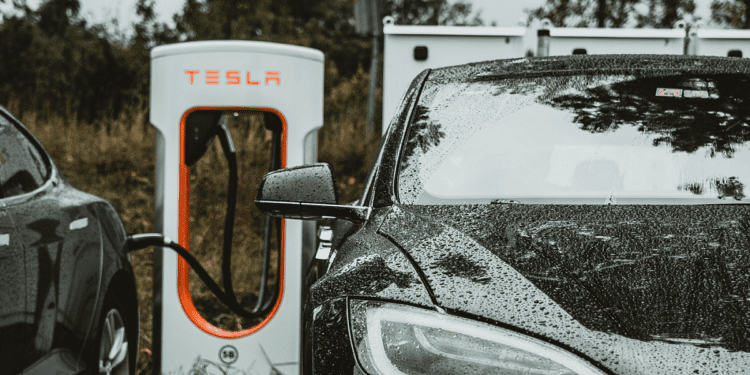Tesla’s long-anticipated Battery Day came with a few interesting, though not surprising, announcements. The main take-aways focused on in-house battery cell production with a renewed focus on sustainability and price.
They have promised us a USD$25k car and the way to do this is by reducing the battery price. This will be achieved by changing the chemical composition of their batteries and focusing on more localized supply chains. The new 4680 battery cell will be bigger and better, providing six times the power of Tesla’s previous cells and five times the energy capacity, with a range increase of around 16% through the new cell design alone, and total range increase coming in at 54%. Other key metrics from Battery Day include reductions in kWh price by 56% and the investment per GWh by 69%. This 56% cost reduction would help bring Tesla closer to a $50/kWh battery price.

One of the big changes is that Tesla is focusing now on cobalt-free cathodes. Cobalt is currently the most expensive material being used in batteries, so removing it from the mix will help bring EVs more on par with gas vehicles. Beyond the price, cobalt, sometimes called the “blood diamond of batteries,” has a lot of negative connotations around it – due to the way it is mined, by whom, and the impacts on the environment. In December 2019, a lawsuit was filed against Tesla, Apple, Alphabet, Dell, and Microsoft by an international human rights group claiming that these companies all make products with cobalt mined by young children. As a response, earlier this year, Tesla started working with Contemporary Amperex Technology Ltd. (CATL) in China to start developing batteries with little-to-no cobalt.
With the push to use less cobalt, demand has ramped up for nickel, the best alternative for battery production. In July this year, Elon Musk started putting out word to mining companies that they should dig up more nickel and he reiterated this yesterday on Battery Day. Drew Baglino, Senior Vice President for Tesla’s Powertrain and Energy Engineering division said “nickel is the cheapest and the highest energy density metals. That’s why increasing nickel is a goal of ours.” In addition to the cost benefits, nickel is lighter and can be sourced in a more sustainable way than cobalt.
Bringing production in-house will help secure supply chains, a problem that has been highlighted during the Covid-19 pandemic, and will help to reduce costs. Musk himself said that nickel cathode production is a new necessity for Tesla, and they’ll be approaching it through a three-tiered approach with high nickel cells for the Semi and the Cybertruck, with a 2/3 nickel and 1/3 manganese mix for “intermediate solutions” – that is cars and stationary energy solutions. Musk said, “We do see the fundamental constraint as total cell production, and that is why we are putting so much effort into making cells and trying to reinvent every aspect of total cell production from mining the ore to a complete battery pack. We are not getting in the cell business for the hell of it, but because it is the limiting factor for rapid growth.”











